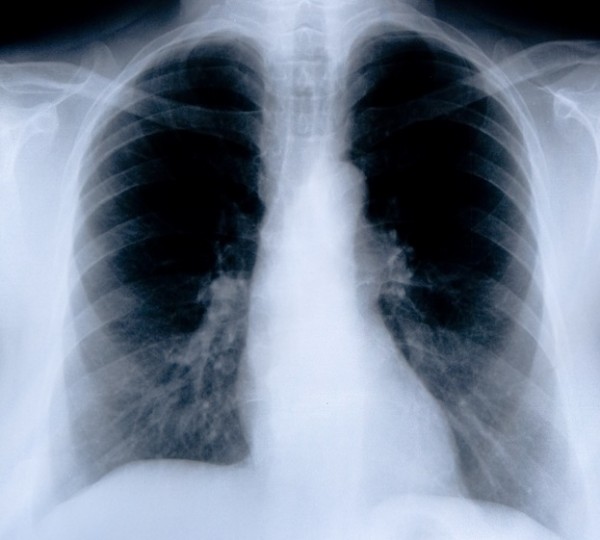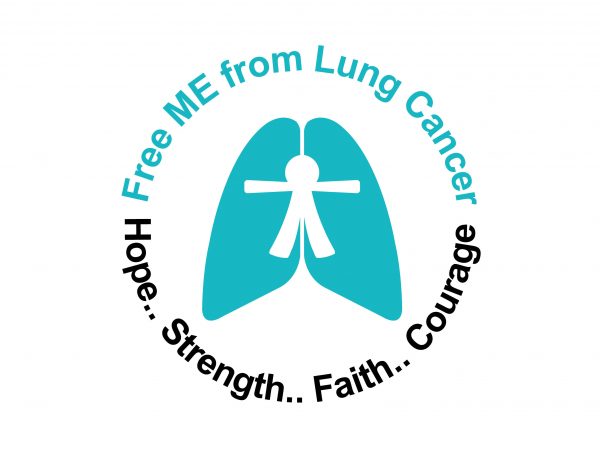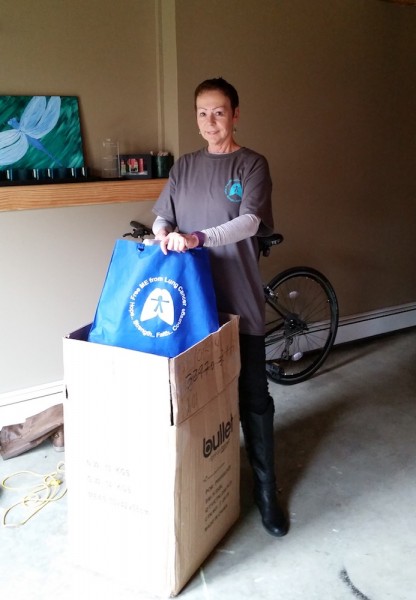Most people assume that all lung cancers are caused by smoking. Period. Given that active smoking is responsible for an estimated 85 percent of lung cancer cases, it seems like a fair assumption. But when I asked Deb Violette, who was diagnosed with lung cancer 18 years ago if she’d been a smoker, I could tell she was slightly annoyed.
“It’s the first question everybody asks a lung cancer patient,” she said. “They never ask other cancer patients if they smoked, yet smoking causes many types of cancers.”
Why does asking matter? It matters because people with lung cancer often get blamed for their disease. Others blame them and they blame themselves. All that blame leads to stigma.
When you feel stigmatized because of your disease, you’re less apt to talk about it and to reach out for support. The stigma also makes it harder to raise money for research into other causes and better treatments.
Rebecca Lehto is an assistant professor at the College of Nursing at Michigan State. She conducted focus groups with about a dozen lung cancer patients aged 51 to 70 who were primarily smokers.
Dr. Lehto concluded that,
“Patients with lung cancer uniquely experience an added burden from developing an illness that the public recognizes is directly associated with smoking behaviors. Stigmatization and smoking related concerns are of high importance. Oncology nurses must be at the forefront in ensuring that patients with lung cancer do not experience additional burden from perceptions that they somehow deserve and need to defend why they have the illness that they are facing.”
Dr. Lecia Sequist, a cancer specialist at Mass General, said this about the stigma of lung cancer in a 2013 editorial for Huffington Post.
“What many people don’t realize is that about 60 percent of all new lung cancer diagnoses are among people who have never smoked or are former smokers, many of whom quit several decades ago. For the first time, the World Health Organization recently declared air pollution as a leading cause of lung cancer. In short, anyone with lungs, anyone who breathes air, can get lung cancer.”
Lung cancer causes
- Smoking. Yes, it’s the leading cause of lung cancer in men and women
- Men who smoke are 23 percent more likely to develop lung cancer
- Women are 13 times more likely to develop lung cancer
- Secondhand smoke. Nonsmokers have a 20 to 30 greater chance of developing lung cancer if they are exposed to secondhand smoke at home or work
- Radon. Exposure to radon is the second leading cause of lung cancer. The risk increases if the person also smokes
- Occupational exposures, including asbestos, uranium and coke
- Air pollution
- Genetic mutations
Deb was diagnosed with lung cancer at age 44. After three lung infections over the course of a few months, her doctor’s office decided to do further testing before putting her on another antibiotic. The diagnosis: Stage 3 lung cancer. The cancerous cells had spread to nearby lymph nodes. She was put on chemotherapy for three months, then had surgery to remove her right lower lobe. After a month of recuperating, she went through two months of radiation therapy.
So, did Deb ever smoke? Yes. “I caved in to peer pressure in high school,” she told me. “Did that cause my lung cancer or did the radon in my home that was over the EPA limits? Or was it because I was raised in an atmosphere of smoke? Smoking was everywhere. Theaters, restaurants, buses, taxis, even school. I remember the teachers had a smoking lounge. They left the door open and smoke would billow down the hallway.”
According to Dr. Yolonda Colson, Director, Women’s Lung Cancer Program at Brigham and Women’s Hospital,
- The majority of men and women who are diagnosed with lung cancer are not active smokers. Most have been smoke-free at least a decade.
- One in five women who get lung cancer NEVER smoked.
Whether it was caused by smoking or radon or a genetic mutation, lung cancer is the leading cause of cancer deaths (men and women) in the United States. It is the second most common cancer in women after breast cancer. It kills more women than breast, ovarian and uterine cancers combined.
Lung cancer screening guidelines
Research has shown that a low-dose CT scan is the best screening method for picking up early stage lung cancer.
The U.S. Preventive Services Task Force recommends the following lung cancer screening guidelines.
- Annual screening for lung cancer with low-dose computed tomography (LDCT) in adults aged 55 to 74 years who have a 30 pack-year smoking history and currently smoke or have quit within the past 15 years.
- Screening should be discontinued once a person has not smoked for 15 years or develops a health problem that substantially limits life expectancy or the ability or willingness to have curative lung surgery.
Making a difference
When Deb was diagnosed, she was given a 10 percent chance of surviving two years. Soon after she finished her treatments, she decided to make the most of however much time she had left. She became a lung cancer advocate and fundraiser for national lung organizations.
In 2012, she started her own non-profit organization Free ME from Lung Cancer. Her goal is to raise money for lung cancer research, education, advocacy and community support.
In 2014, she helped fund an early detection lung cancer screening for 20 people at Central Maine Medical Center.
In 2015, she received a $15,000 grant from the Maine Cancer Foundation for early detection screening at two Maine hospitals. ”
Over the past two years, Free ME from Lung Cancer raised a whopping $100,000 by hosting an annual auction and 5K race. The money will fund its first lung cancer research grant. On her facebook page, Deb wrote. “Wouldn’t it be awesome if that money led to an even bigger discovery to cure this disease and it came from folks here in Maine that wanted to make a difference in the lives of lung cancer patients and their families. How cool would that be?”
She said her organization will be meeting with its scientific advisors in the near future to get guidance on where the money will have the biggest impact.
Lung cancer research and awareness
Deb Violette is driven to make a difference for lung cancer patients. She wants the money she raises to help screen at-risk individuals and to help research lung cancer treatments. New surgical methods. Better radiation techniques. Targeted therapies that can zero in on specific genetic mutations in lung cancer cells. Immunotherapy that activates the immune system to attack the cancer cells.
She wants to raise awareness about the latest lung cancer information — that patients should be asking for genetic testing, for instance. “All too often,” she explains, “when somebody is diagnosed with lung cancer, they’re not testing for genetic mutations. They’re basically just giving them the traditional chemo, surgery and radiation. Patients and family members need to get that tumor tested for mutations because if you start a treatment and it doesn’t work, you may not be eligible for something else.”
She has some help running Free ME from Lung Cancer and the fundraising events it sponsors, but not nearly as much as she needs. She believes it is the stigma of lung cancer that prevents many survivors and their family members from getting involved. “I’ve been doing this for 18 years,” she says. “Very few people come up and say they want to help or even talk about it. It’s really hard to find a survivor or a family member who’ll talk.”
More than anything, Deb wants the blaming to end. “So what if people have lung cancer,” she says. “They need just as much respect as anybody else who gets sick. Respect and support. They have the same feelings and the same experiences that any other person with any other cancer has, but yet they are pushed to the back.”
Help break the stigma
Do you want more information about Deb, her mission, the events she sponsors and the free screenings she funds? Do you want to help break the stigma against lung cancer and lend her a hand? You can contact her through the Free Me from Lung Cancer website or call her at (207) 622-6155 or (207) 215-9035.
If you have your own lung cancer story, I invite you to share it in the comment section below.





Another great piece, Diane, that shines some much-needed light on lung cancer. I know two women who never smoked but are dealing with the disease. And I come from a long line of smokers (I was one myself until I turned 30) and lost my grandfather, two aunts and an uncle to the disease, so I’m very aware of the risks. The judgment that implies “you brought this on yourself” has got to stop!
Thanks, Roxanne. My dad died of lung cancer. A primary cause was Agent Orange. He was exposed when he served in Vietnam.